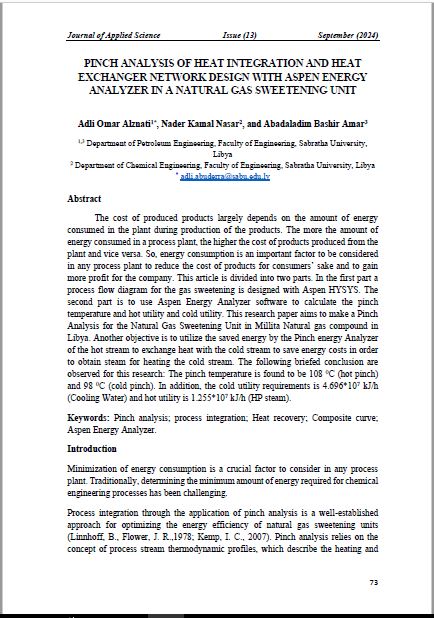PINCH ANALYSIS OF HEAT INTEGRATION AND HEAT EXCHANGER NETWORK DESIGN WITH ASPEN ENERGY ANALYZER IN A NATURAL GAS SWEETENING UNIT
Keywords:
Pinch analysis, process integration, Heat recovery, Composite curve;, Aspen Energy AnalyzerAbstract
The cost of produced products largely depends on the amount of energy consumed in the plant during production of the products. The more the amount of energy consumed in a process plant, the higher the cost of products produced from the plant and vice versa. So, energy consumption is an important factor to be considered in any process plant to reduce the cost of products for consumers’ sake and to gain more profit for the company. This article is divided into two parts. In the first part a process flow diagram for the gas sweetening is designed with Aspen HYSYS. The second part is to use Aspen Energy Analyzer software to calculate the pinch temperature and hot utility and cold utility. This research paper aims to make a Pinch Analysis for the Natural Gas Sweetening Unit in Millita Natural gas compound in Libya. Another objective is to utilize the saved energy by the Pinch energy Analyzer of the hot stream to exchange heat with the cold stream to save energy costs in order to obtain steam for heating the cold stream. The following briefed conclusion are observed for this research: The pinch temperature is found to be 108 0C (hot pinch) and 98 0C (cold pinch). In addition, the cold utility requirements is 4.696*107 kJ/h (Cooling Water) and hot utility is 1.255*107 kJ/h (HP steam).


